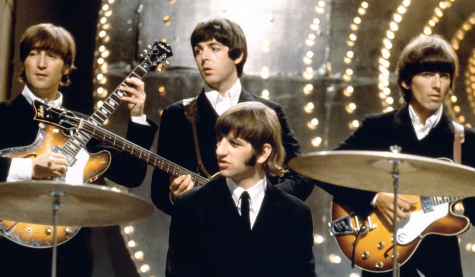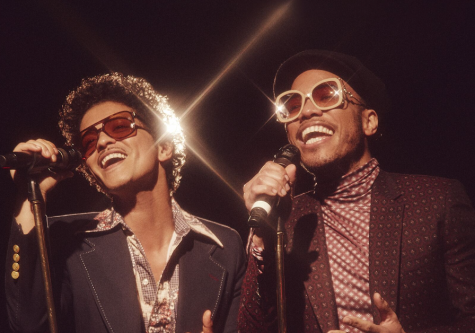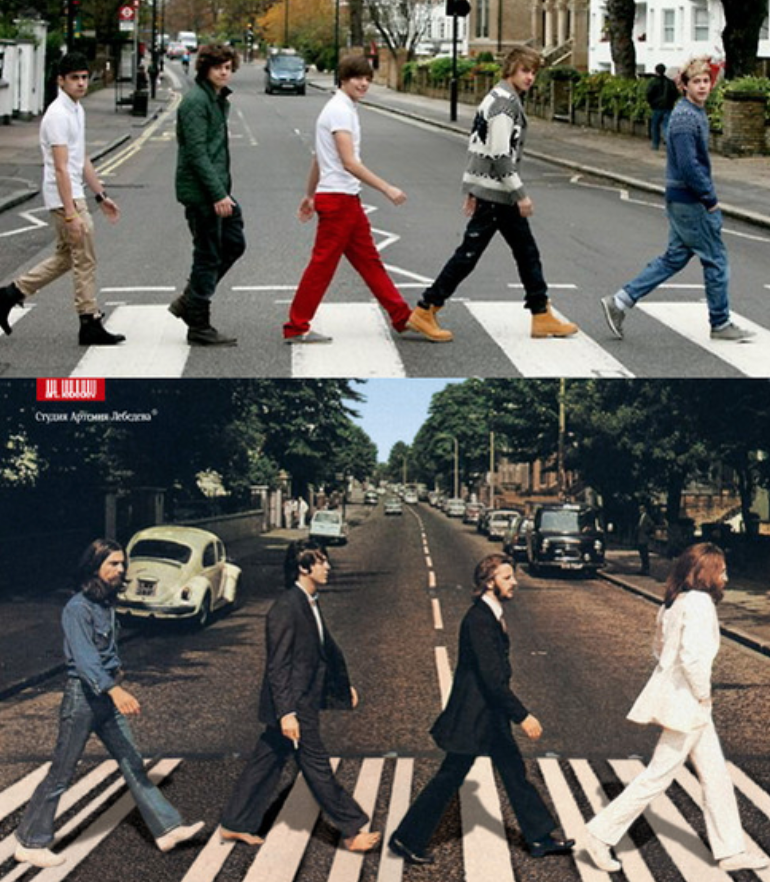What Makes the Classics… Classic?
Jacob Park ’26 breaks down the recurring conflict over the validity of new versus old music.
Generational conflicts happen all the time in our lives. Whether that be what to do on a Saturday morning, what the best Star Wars movie is, or how to listen to music. It is quite clear that different generations have different experiences, lives, and preferences. Despite this, there is one popular notion that most can agree upon: modern music sucks.
Listening to the Beatles, Led Zeppelin, and Stevie Wonder makes you musically-sophisticated, whereas Taylor Swift, Katy Perry, and Ed Sheeran do not. Of course, the newest generations do listen to and appreciate modern music, but everyone looks at “old music” as if there is some magical quality to it—a je nais se quoi that “music today lacks.” Is that true? Has the quality of music diminished over time? And why do people hate on modern music?
The first and most obvious reason is bias. Naturally, humans tend to romanticize and strongly prefer what they are already familiar with. Music today lacks the hard-hitting nostalgia that colors music from the 20th century for the older generations.

Indeed, for previous generations, the music they hear now is not the equivalent of seeing the Beatles on the Ed Sullivan show, singing along to American Pie in your car, or tuning in on the 1985 Live Aid. This human instinct to reject anything new or different likely leads to this ever-recurring conflict especially if one holds the old near to their heart. However, if we apply this reasoning to our generation, would music now be considered “great” and future music “trash?” Or is modern music genuinely bad at its core?
Bias alone is not the only obstacle facing modern music; another factor is musical complexity, which covers aspects such as melody, production, and songwriting. Objectively, music has become less complex over time. The genre of modern pop calls for simpler arrangements, melodies, and chord progressions: A typical radio pop song sticks to the major and minor chords in one key, and many utilize the I-V-VI-IV chord progression, which in recent times has skyrocketed in usage and appears in thousands of songs all over the radio and TikTok. Even the short form content and entertainment we consume calls for catchier, simpler songs. This style of today is vastly different from the experimental musical choices of the Beatles’ 1966 album Revolver or the complex arrangements of the Beach Boys’ 1965 album Pet Sounds. Due to this turn towards musical simplicity, people have been keen on believing that the quality of music has declined.

However, a romanticization of the past and an appreciation of musical complexity don’t tell us much about the quality of modern music. In fact, songs such as Adele’s “Strangers By Nature” and Silk Sonic’s “Leave the Door Open” utilize beautiful chords and melodies in their music. But simple does not mean bad, and complex does not mean good. A truly good song is able to transfer emotion and meaning into the song; and along with the right producing, it doesn’t matter if the song is over pop chords or jazz chords. And perhaps a simple, fun song works by means of being a simple, fun song. Even the Beatles in their early stages were just a boy band singing pop songs about love.
On top of that, it is important to note that not all “old music” was great; people such as David Bennett point out the fact that there were plenty of one-hit wonders from 40 years ago that are now irrelevant. Bennett also points out that comparing music masterpieces of the 20th century to random hits of today is not a fair comparison. Not all songs then were “Yesterday,” “Good Vibrations,” or “Bridge Over Troubled Water.”
Sounds change with time, and preferences differ vastly. At the end of the day, music is here for us to experience and feel new emotions and ultimately make us happy. The memories and connections that surround a specific song or band differ for each person. It’s not what other people think or how complex or how “cool” a song is, but rather, the emotional value that exists between listener and the music.


